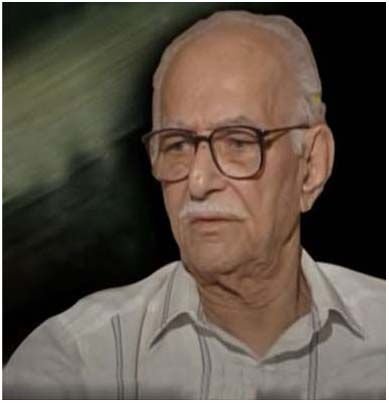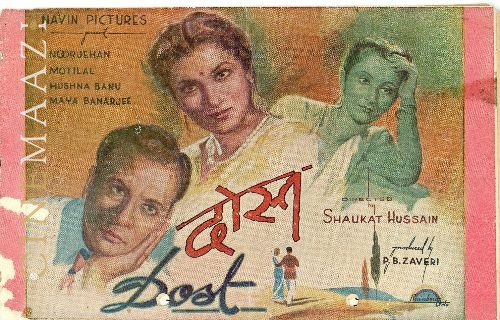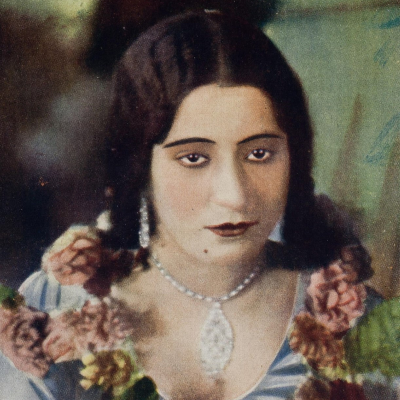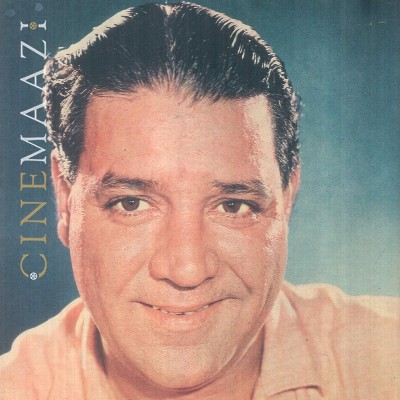Shaukat Hussain Rizvi

Subscribe to read full article
This section is for paid subscribers only. Our subscription is only $37/- for one full year.
You get unlimited access to all paid section and features on the website with this subscription.
Not ready for a full subscription?
You can access this article for $2 , and have it saved to your account for one year.
- Born: 1914 (Azamgarh)
- Died: 19 August 1999 (Pakistan)
- Primary Cinema: Hindi
- Spouse: Noor Jehan
- Children: Zil-e-Huma, Akbar Rizvi, Asghar Rizvi
Director, editor, producer Shaukat Hussain Rizvi is known for films such as Jugnu (1947), Jaan-E-Bahaar (1958) and Zeenat (1945). Post-Partition, he would be credited with establishing cinema in newly-formed Pakistan. He produced some of the earliest super hits in the region. He is also credited with the success of two iconic names in Indian cinema – Noor Jehan, whom he married in 1944, actor Pran, and Mohammed Rafi.
Born in 1914 in Azamgarh, United Provinces of Agra and Oudh, British India, he started his career as a film projectionist. He progressed further after he shifted to Lahore in 1938, to work as an editor. In order to pursue his dream of filmmaking, he made another big move, shifting to Bombay to work as an editor at Madan Theatres. His big break came when he bagged the opportunity to direct a film in 1942 – Khandan. It would become a super-hit at the time. A family drama, it starred Noor Jehan, Pran Sikand, and Ghulam Mohammed. The plot revolved around a young man who gets jailed for killing a woman who seduces him. When he gets released, he tries to stop his employer's son from committing the same kind of crime he did.
The success of Khandan cemented Rizvi’s position in the industry and he went on to establish his own film company, Shaukat Art Production. Under this banner, he released hits such as Naukar in 1943, Dost in 1944, and Jugnu (1947), in which he launched the legendary singer Mohammed Rafi.
His directorial Naukar, which was penned by Urdu novelist Sadat Hassan Manto, told the tragic story about the trials and tribulations of Fazlu (Chandramohan), the lifelong servant of the Khwaja Islamuddin. The cast also comprised Mirza Musharraf and Shobhna Samarth. A realist tragedy, it revolved around Fazlu, who is blamed for the death of Islamuddin’s infant son Salim in a railway accident, and is jailed. Escaping from prison, he finds his wife has given birth to a son whom he believes to be Salim’s reincarnation. The film chronicles Fazlu in his old age, when his son, also named Salim, befriends Nargis, Mirza and Sadiq. When Fazlu moves to the city, he helplessly watches the destruction of his family by economic circumstances. Nargis dies in his arms, Mirza is arrested, Sadiq commits suicide and Fazlu ends up once again in prison. Much of the film works through symbols like the whistle of the railway engine evoking traumatic memories.
Dost starred Maya Banerjee, Husn Banu, and Kanhaiyalal Chaturvedi, while Jugnu featured Dilip Kumar, Noor Jehan and Shashikala, with a cameo appearance by Mohammed Rafi. The film revolved around Suraj, the son of a rich landlord, and Jugnu, an orphan, who fall in love with each other. The film reportedly faced controversies because of its manner of depicting romance. Certain sections of society including some film critics even demanded that the film be banned. The protests notwithstanding, the film was praised for its actors' performances, and became a major commercial success, becoming the highest-grossing Indian film of 1947. The film was also Dilip Kumar's first major hit and marked the start of his stardom.
In 1945, Rizvi had directed the comedy drama Zeenat, revolving around a disgraced widow who is forced to work as a maid for her fatherless child. It starred Noor Jehan, Lala Yaqoob, and Karan Dewan.
After the formation of Pakistan, Rizvi shifted to Lahore. Here, he took over the erstwhile Shorey Studios, transforming it into the renowned Shahnoor Studios. He would “provide a place for filmmaking in the shape of Shahnoor Studios which was the centre of filmmaking in the early days of Pakistan.”
With work at Shahnoor Studios being abundant, Rizvi produced a number of big hits at the studio. These include 1951’s Chanway, 1953’s Gulnaar and Jaan e Bahaar in 1958. Chanway also marked the start of a stellar career for Noor Jehan in Pakistan.
Married to the legendary singing star Noor Jehan in 1942/ 1944, she would star in most of his hit films, ensuring his success. However, following their divorce in 1955, Rizvi evidently lost his touch and was unable to recreate the success of his earlier films.
They had three children – daughter singer Zil-e-Huma, and sons Akbar Rizvi and Asghar Rizvi. His grand-daughter Sonya Jehan became an actress. His grandsons are actors Sikander Rizvi and Ahmad Ali Butt.
Rizvi passed away on 19 August 1999 at the age of 86 years. After his death, the control of Shahnoor Studios was transferred to his sons. Today, the studio is not active.
Speaking of Rizvi’s contribution to cinema, chairman of Pakistan Film Distribution Association, Chaudhry Ejaz Kamran said, "Shaukat Hussain Rizvi is no doubt a pioneer of our local film industry. He was the top film director when India and Pakistan were united and he proved his skill as a film-maker back then.” He also thanked Rizvi for his struggle and services to the industry.
Senior film director Altaf Hussain said, “The services of Shaukat Hussain Rizvi will be remembered forever as he was the man who first thought about doing something good for the establishment of the local film industry.”
References
https://tribune.com.pk/story/2260244/21-years-on-remembering-shaukat-hussain-rizvi
https://www.imdb.com/name/nm0729820/
https://indiancine.ma/DVR/info
https://web.archive.org/web/20170812172134/http://www.radio.gov.pk/19-Aug-2016/death-anniversary-of-shaukat-
hussain-rizvi-being-observed-today
Image courtesy:
-
Filmography (1)
SortRole
-

Dost 1944
-










.jpg)



